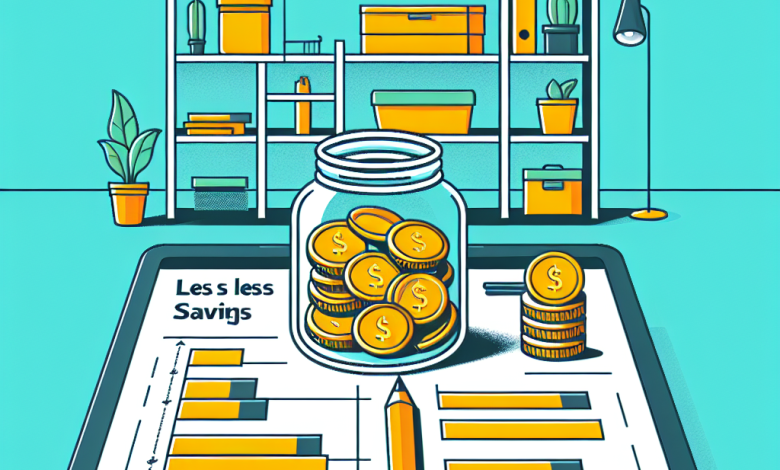
The Financial Benefits of Decluttering: How Less Stuff Means More Savings
The Financial Benefits of Decluttering: How Less Stuff Means More Savings
In today’s fast-paced society, accumulating possessions has become almost second nature. From gadgets to clothing, our homes are often overflowing with items that serve little purpose beyond taking up space. However, there’s a growing movement advocating for a simpler lifestyle through decluttering—a process not only aimed at enhancing living conditions but also at creating significant financial benefits. This article explores how reducing the number of items you own can lead to substantial savings, both immediate and long-term.
1. The Cost of Clutter
At first glance, clutter may not seem like a financial burden. However, the costs involved in maintaining excess possessions can accumulate more quickly than you might expect:
- Storage Costs: If you’re renting storage units to house your extra belongings, you’re incurring monthly fees that can add up significantly over time.
- Insurance Expenses: More stuff means more valuables to insure. Higher insurance premiums reflect the increased risk and replacement costs.
- Utility Bills: Homes filled with items can require more energy to heat, cool, and light, ultimately leading to higher utility bills.
2. Maximizing Space for Efficiency
Decluttering creates physical space, which can unlock new economic opportunities. Here are a few ways it can help:
- Creating Room for a Home Office: With the rise of remote work, decluttering can free up space to set up a home office without incurring additional business costs.
- Utilizing Space for Rent: If you have extra rooms or storage space, decluttering can empower you to rent out these areas on platforms like Airbnb or through local rental listings, generating additional income.
3. Reducing Impulse Purchases
When our homes are cluttered, it can cloud our judgment about what we truly need. This often leads to unnecessary purchasing:
- Mindful Spending: Decluttering invites you to assess what you already own. When you recognize how much stuff you have, you tend to spend less on unnecessary items and make more intentional purchases.
- Clear Inventory: By understanding your possessions, you can better resist the temptation of impulse buys or trendy items that often end up unused.
4. Selling Unused Items
One of the most immediate financial benefits of decluttering is the potential to sell items you no longer need:
- Online Marketplaces: Websites and apps like eBay, Facebook Marketplace, and Poshmark allow you to sell gently used items to a broad audience. Old electronics, clothes, and furniture can fetch decent prices, putting cash back in your pocket.
- Garage Sales and Local Events: Organizing a garage sale can not only declutter your home but also generate instant income. Even small sales add up over time and can help clear out unwanted items.
5. Improved Financial Mindset
Decluttering doesn’t just physically lighten your load; it can also shift your mindset towards finances:
- Austerity and Savings: Embracing a minimalist lifestyle often comes with a commitment to save more. As you declutter, you may realize the value of saving rather than spending, fostering a healthier financial outlook.
- Investing in Experiences: Many declutterers find themselves valuing experiences over things. This shift often leads to better budgeting practices, as you may choose to save for travel, courses, or other meaningful experiences instead of adding more items to your home.
6. Long-Term Financial Gains
Beyond the immediate savings, decluttering sets the stage for long-term financial health:
- Lower Maintenance Costs: Fewer possessions mean less maintenance—no need for repairs, cleaning, or replacements. This translates into long-term savings on everything from servicing appliances to house cleaning services.
- Moving Costs: If you’re contemplating a move, reducing clutter can lower moving expenses significantly. Paying for a smaller truck or storage unit will lead to direct savings when relocating.
Conclusion
Decluttering is more than just a way to tidy your living space; it’s a strategic approach to improving your financial health. By reducing the quantity of possessions you own, you can save money on storage, insurance, and utility costs, while also freeing up capital from selling unused items. Furthermore, the mental shift towards minimalism can foster a more conscious relationship with spending and saving. So, take the plunge—embracing a simpler lifestyle today promises not just a fresh home, but also a healthier wallet for tomorrow.
 GOOGL
GOOGL  META
META 


